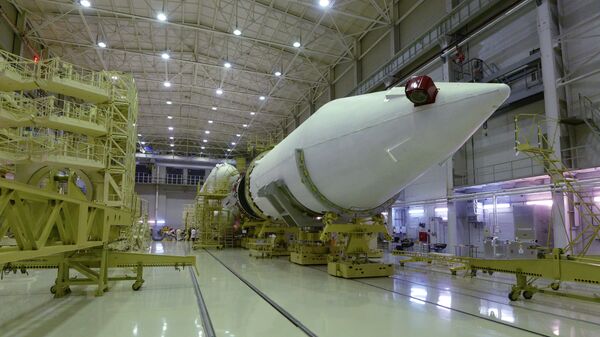"We have re-allocated funds for launch vehicles, especially in the super-heavy category, but ensured that all payloads planned until 2030 will be launched to orbit," Roscosmos head, igor Komarov told reporters.
"We are planning to resolve this issue by developing Angara-5B [by adding extra booster stage], and I believe it is an optimal variant," Komarov said.
According to previous reports, the decision to abandon plans to build a super-heavy launch vehicle from scratch allows Roscosmos to reduce the project's cost tenfold — to 60 billion rubles ($1.1 bln).
Earlier this month, Komarov said that the first launch of the Angara super-heavy carrier rocket will take place in 2021.
The Angara family of space launch vehicles has been in development since 1995. The new Angara rockets will increase Russia's independence in space exploration, according to Roscosmos.



